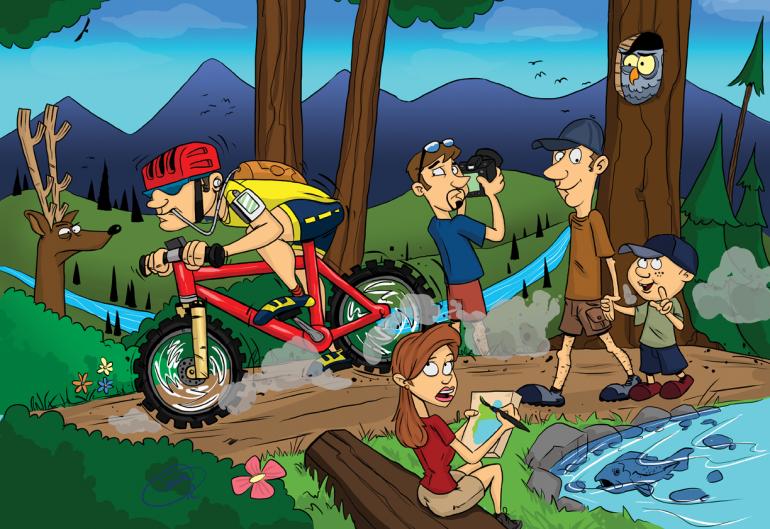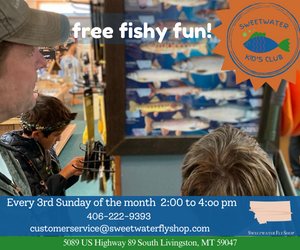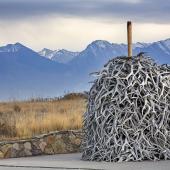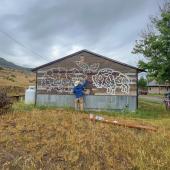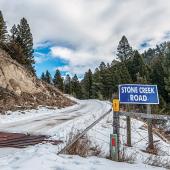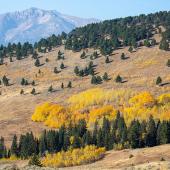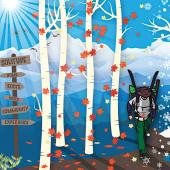Brave New Backcountry
In the realm of ecopsychology, our relationship with true nature—not what you find in zoos, arboretums, or running off-leash around Bozeman—is necessary and integral to our psychological development and long-term mental health. That health is in part a result of our constant interaction and communication with all forms of Nature—alive and, well, unalive. Take away that communication and interaction, and as ecopsychologist Jorge Conesa-Sevilla says, “Cynicism, depression, apathy, anger, and anguish are some of the dark cognitive states and emotions… [that are] illnesses of Nature estrangement or dissociation.” In short: no true nature = madness.
To illustrate that concept, imagine being dropped off at an unknown location—say, Planet Gore-Tex. You’re totally unable to comprehend the Gore-Texian writing, signs, and language, but as a matter of survival, you are forced to function on a daily basis within that society. You are hungry, confused, and constantly bewildered by what is happening. Some days it rains, but being unable to read the weather signs, you, unlike the native Gore-Texians who claim to stay dry, yet breathable all the time, are soaked and cold. That is where we are today, functioning within a community (nature) that is constantly presenting us with signs but without a comprehensive understanding of the language to be able to live our lives by it.
I don’t want that idea to sound like some new-age blather. Communicating with nature is as simple as processing what we see, smell, hear, touch, and taste and using that information to plan and live our lives. It can be as overt as hearing the first meadowlark of the season or as subtle as a shimmering halo around a full moon, a fresh buck rub, or the heady smell of rain in the air. For example, geese flying south tells you what? Time to wax your skis and dig out your snowshoes.
How much communicating and interacting does one engage in when charging down a mountain trail, iPod pumping, lycra and spandex shedding fresh air from the skin, sports goo infiltrating the taste buds and nostrils, and eyes darting from heart rate monitor to pedometer? It’s no wonder that mountain lions tend to pick off those out for their afternoon 5k bike ride through the foothills—they’re like plastic-wrapped fast food.
Now, if exercise is what flips your burger: great! If we were spending the vast majority of our lives in true nature, then I would happily say “train on!”—but we aren’t. It’s like heading down to the coffee shop for a grande breve latte instead of walking that poor neglected meatloaf with paws you call a dog. Sure the foo-foo drink tastes great, but can you really enjoy it knowing there are more important things to do? There are consequences for focusing on so-called “surrogate activities” instead of on activities that enrich our lives and reconnect us to nature.
When it comes to spending time in nature, it’s all about the quality of the experience, as John Dewey said, and the lack of quality time in nature is a problem that not only already affects (sometimes) mature adults, but also, and more importantly, our children. There is a growing awareness of this problem thanks in large part to Richard Louv’s seminal book, Last Child in the Woods, which documented the results of children who grow up connected to the magical glowing rectangle and are disconnected from nature.
But what about the grown-ups who have apparently developed adult-onset Nature Deficit Disorder? Unfortunately, many of us view nature as a place to cross-train. We need to spend less time getting crazy cardio workouts or pumping up those small game hens you call your calves and more time watching ants like old Henry David. Sure, Thoreau couldn’t have completed an Ironman, but he knew a thing or two about life that still eludes most people today.
So take a day off of your training regimen. Leave the lycra and spandex on the shelf. You won’t need it to experience true nature—and besides, you look silly in it. Head for the hills and find a quiet place to just sit and listen, eat a little dirt, and take note of what what the birds and bees are all about.
Paul is a senior instructor at Jack Mountain Bushcraft and Guide Service in Maine and founder of Sustainable Outdoor Adventure and Recreation at soaradventures.com.


